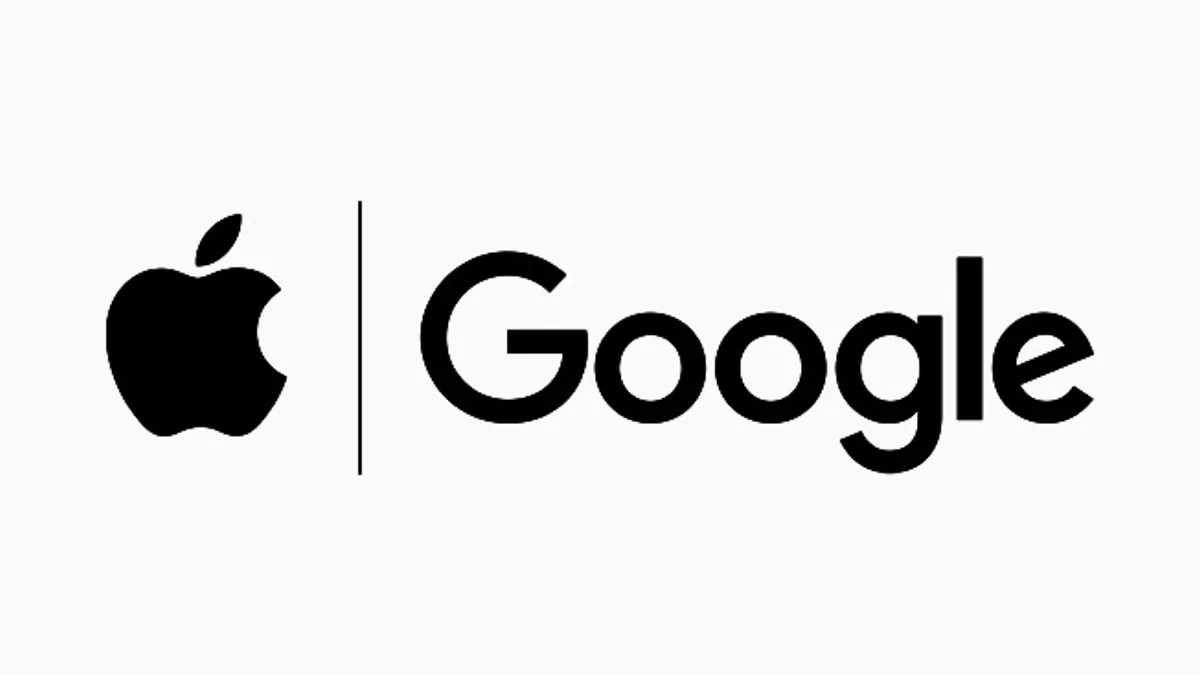Dive Brief:
- Apple and Google have launched software allowing public health agencies to create contact tracing apps that will notify users if they've been close to a person who has tested positive for COVID-19.
- The infrastructure, Exposure Notification, uses the Bluetooth radios within iOS and Android systems for contact tracing apps and will be part of a software update the companies are pushing out Wednesday. Amid privacy concerns, Apple and Google say the apps will be fully opt-in and have other built-in consumer protections.
- Twenty-two countries and multiple states including Alabama, North Dakota and South Carolina have requested and been given access to the technology so far, the companies told Healthcare Dive.
Dive Insight:
Contact tracing can be an important tool in public health's arsenal to gain a holistic picture of the pandemic, especially as states begin reopening public spaces and businesses. Google and Apple's highly-anticipated project was released Wednesday and is expected to be updated in June.
The capability relies on an application programming interface letting approved tracing apps tap into a smartphone's Bluetooth radio and monitor whether the user came in contact with someone who is infected or later tests positive for COVID-19. The app alerts its user, who can self-quarantine while waiting to get tested.
Critics question the app's effectiveness and a user's input. If the user declares a positive test for COVID-19, what data was that based on? Google's parameters of symptoms? A test?
The software will not track user locations or collect identifying data, it assumes everyone has a smartphone. Governments will not be able to turn the apps on silently, and Google and Apple have the ability to shut down the broadcast system region-by-region as the pandemic eases.
Despite Apple and Google's decentralized approach, privacy and security professionals recognize that some amount of data will pool into a centralized unit. Even if data points on the surface appear miniscule, they could become subject to abuse. The owner of the data — the device-holder — is less important than where the data is stored.
Healthcare or government officials will eventually want data to process where the hotspots lie, and whether the virus is more potent in specific regions. While anonymization is possible for analysis, it requires some degree of trust between collaborative parties, i.e. the user and the larger analytical body.
Half of consumers report they'd be comfortable using smartphone apps to track potential contact with infected individuals, according to Kaiser Family Foundation polling. People are twice as willing to download such an app if it's managed by a public health agency than a private technology company.
Contact tracing apps are also raising alarms among civil liberty groups and security experts fear it could evolve into an unethical social graph of citizens. Neither groups with interest in digital tracing, the public or private sector, have presented policing efforts to mitigate those concerns.
Silicon Valley giants have a blemished record when it comes to managing patient data. Google is embroiled in an HHS Office for Civil Rights investigation after using millions of Americans' medical data to develop product lines last year.
States are struggling to scale their contact tracing infrastructure amid the pandemic. Nearly all are conducting some form of tracking and reporting, but strategies vary widely from hiring or reassigning government employees to deploying the National Guard to taking a more tech-driven approach.















